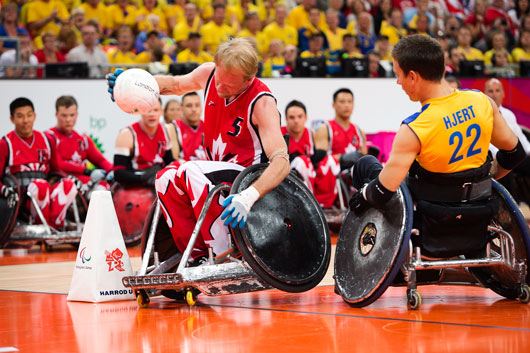
While rugby 7s rules are similar in structure to the 15s game there are some differences. Extra in-goal judge are available to rule on kicks at goal as well as penalties and drops. Foul penalties can also be found in rugby 15s. However, they are typically shorter than long taps. A foul is a penalty that a player receives for bad sportsmanship, or being disrespectful to a referee.
Lineouts
Lineouts are a restart of a game, after the ball has been kicked into touch. Lineouts are used to give the team the best chance of winning possession.

Dropouts
Dropouts in rugby 7s rules is a controversial issue in the sport. The specialist Breakdown Working Group reviewed current rules in order to identify the best way to reduce breakdown risk. Two key laws are being tested: the goal-line drop-out and the single-ladder catch and drive. These changes will affect all rugby forms.
Short and long kicks
Long and short kicks are both part of the game of rugby sevens. Each team must be able and capable of executing them. The game is fast-paced. Players have to keep up with the pace of play. This game requires more fitness than traditional rugby.
Foul penalties
Rugby 7s can be described as a sevens variant of rugby 15. A foul penalty can be applied to a rugby sevens player who fails to adhere to the rules. Fouls could include blocking or deliberately throwing the ball out. Foul language, disrespecting match officials and using foul language are all examples of infractions.

In rugby 7s
Rugby sevens' goal is to touch the ball at the opponent’s end line. Just as in rugby 15s, a try scores 4 points for the team who touches down. Six points are awarded for a goal score. To convert a try to a goal, a team must kick from the sidelines or in midfield.
FAQ
Why do people enjoy extreme sports?
Extreme sports can be enjoyed for many reasons.
They offer thrills.
Extreme sports can be exciting. Extreme sports can be unpredictable and scary.
Third, they allow people to push their limits. You never know what may happen next.
Fourth, they can be used to help people escape everyday life.
Fifth, they allow people freedom to express their feelings through creative forms of art. Some extreme sports are artistic expressions, such as surf carving.
They help people stay fit. There are many extreme sports that you can do for your health. Skydiving helps with coordination, balance, as well strength.
Extreme sports are fun. People love being in a group, especially if they are having a great time.
Is football an extreme sport?
It all depends on whom you ask. It is a game that millions have played for thousands of decades all over the globe. Many people argue that football is not a sport, but entertainment. Others say that it is as much a sport as any other. And then some believe that football is nothing less than the ultimate sport.
The truth is somewhere in the middle of these extremes.
Football is an extreme sport. But it's also a game that requires teamwork, strategy as well as skill and ability to manage speed, strength, stamina and power.
Do extreme sports require expensive equipment?
Yes. Extreme sports equipment costs thousands of dollars. But people who participate in these activities don't need much money.
Can kids participate in extreme sports?
The answer depends on whether you discuss sports as a whole or individual sporting activity. They should try all types of activities. However, this will vary depending on the kind of skiing they choose. Some people love extreme sports like bungee jumping while others prefer to ski downhill. It all depends on the level of risk involved. Skydiving is not something that someone who enjoys bungee jumping would enjoy if they were afraid of heights.
Statistics
- Landscaping and grounds-keeping— according to government labor statistics, about 18 out of 100,000 workers in the landscaping industry are killed on the job each year. (rosenfeldinjurylawyers.com)
- Nearly 40% of all mountain bikers have at least graduated from college. (momsteam.com)
- Approximately 50% of all wakeboarders have been participating in the sport for 1-3 years. (momsteam.com)
- Boxing— 90% of boxers suffer brain damage over their careers, and this is not surprising in the least, considering that they are throwing punches at each other's heads. (rosenfeldinjurylawyers.com)
- Based on the degree of difficulty, the routine is scored on form and technique (50 percent), takeoff and height (20 percent), and landing (30 percent). (britannica.com)
External Links
How To
How do I learn to skateboard
Skating, which is a sport you can use your feet to skate on ice or snow, is one of the most popular. You can do this either by yourself or with friends. It is a sport that requires balance and coordination. It is important to know how to stand tall on the boards. Next, you will need to practice balance while moving forwards and backwards. You can also try jumping off stairs or ramps. Once you learn these skills, you will be able skate faster and further than you ever thought possible.
If you're looking to get into skating, here are some tips on getting started.
-
It is important to determine the type of skates that you are looking for. There are many different types of skates like inline skates or roller blades. Speed skates, figure and speed skates are all available. The type of skill you have will determine which skates you should purchase. If you're new to skating, the best options are inline skates, speed skates, and roller blades. Figure skaters are more likely to purchase boots that provide support for their movements.
-
Buy proper equipment. The purpose of your gear selection will depend on whether it is for competitive events or simply to enjoy skating in the park. Skates that are well-made, durable, and fit well for competition are the best.
-
Try new techniques. You can improve any skill with practice. Don't wait to master a skill before you try it. Instead, you can practice basic moves like walking backwards or sliding sideways or spinning. You won't be intimidated if you try more difficult moves later.
-
Keep learning. Never expect to become a skilled skater overnight. The best skaters spend years learning their craft. They never stop learning. Keep in mind that there are many techniques you can use to improve. You can take lessons at your local rink or join a recreational league. You can also watch videos online and attend workshops.
-
Be patient. Don't be discouraged if you have difficulty with a difficult maneuver. Keep practicing. You will eventually develop the confidence to perform advanced stunts.
-
Have fun. Skating is great for beginners, as it doesn't require expensive equipment and requires little training. It's also a lot fun!